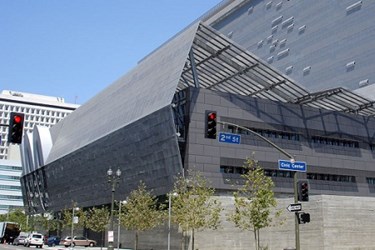Recycled Water: There's Just Not Enough
Water reuse, one of the most promising hopes for combatting scarcity, is running up against a major problem: There just isn't enough of it.
When Caltrans, the California agency responsible for highways, tried to reduce the amount of water it used for roadway landscaping, water reuse was a key element of the plan. But the challenge has been finding a sufficient amount of recycled water for its projects, according to the Los Angeles Daily News.
Certain regulations restrict Caltran's use of recycled water to the community where it is recovered from. Some policymakers are pushing to ease the rules around water reuse.
"Councilman Tom LaBonge submitted a proposal Nov. 19 asking for the Department of Water and Power (DWP) to look into broadening the use of recycled water on freeways to save water during the current drought. [January] was the first time the City Council’s Environment and Energy Committee convened since then," the report said.
"The committee did not take any final action but asked for a report back on the Caltrans policy, what the DWP prospects are for expanding recycled water availability as well as any problems in dealing with different jurisdictions," the report said.
Another challenge for water reuse is the installation of pipelines to keep it separate from potable water, which can be expensive, according to the report. Caltrans Landscape Architect Ed Siribohdi explained his agency's approach to these costs.
“A lot of the freeways were built in the 1940s and 1950s and that’s when the irrigation pipes went in,” Siribohdi said, per the report. “We try to upgrade them, but we only have so much money available for it. Most of our money has gone for extra lanes and safety features.”
Some of Caltrans' projects for saving water have met criticism for potentially harming trees. Arborists say a reduction in watering is "threatening the lives of mature trees on thousands of acres near California freeways, off-ramps and rest areas," according to the Sacramento Bee.
Caltrans has set other goals for water sustainability in its drought action plan, such as delays for new planting, pilot projects, and infrastructure replacement. Conservation is a major part of its effort, and it has reduced the amount of water it uses by almost half compared to a decade ago, according to the News.
For more on water reuse, check out Water Online's Water Reuse Solution Center.
Image credit: "Caltrans Loves 1," Omar Barcena © 2005, used under an Attribution 2.0 Generic license: https://creativecommons.org/licenses/by/2.0/
